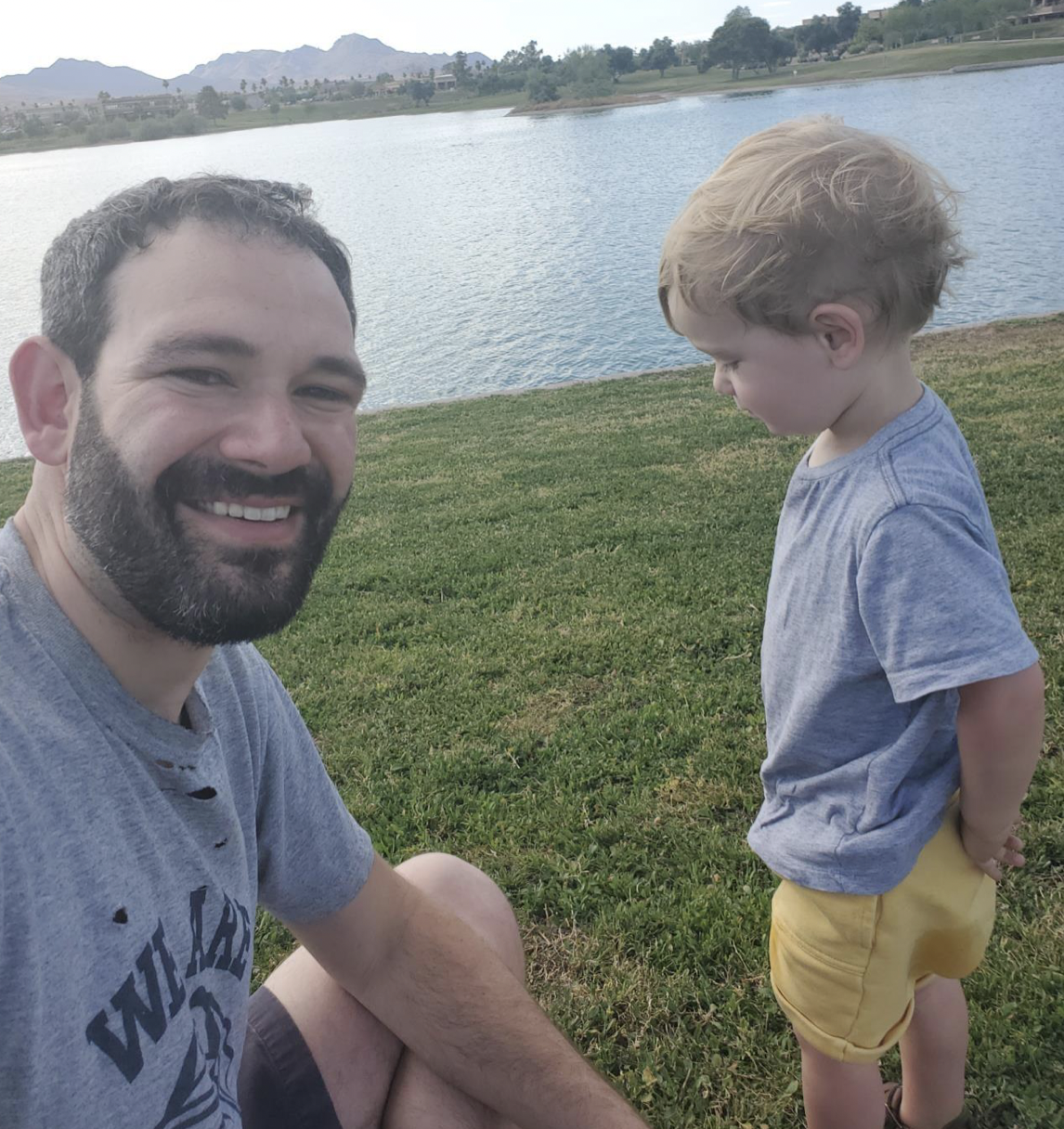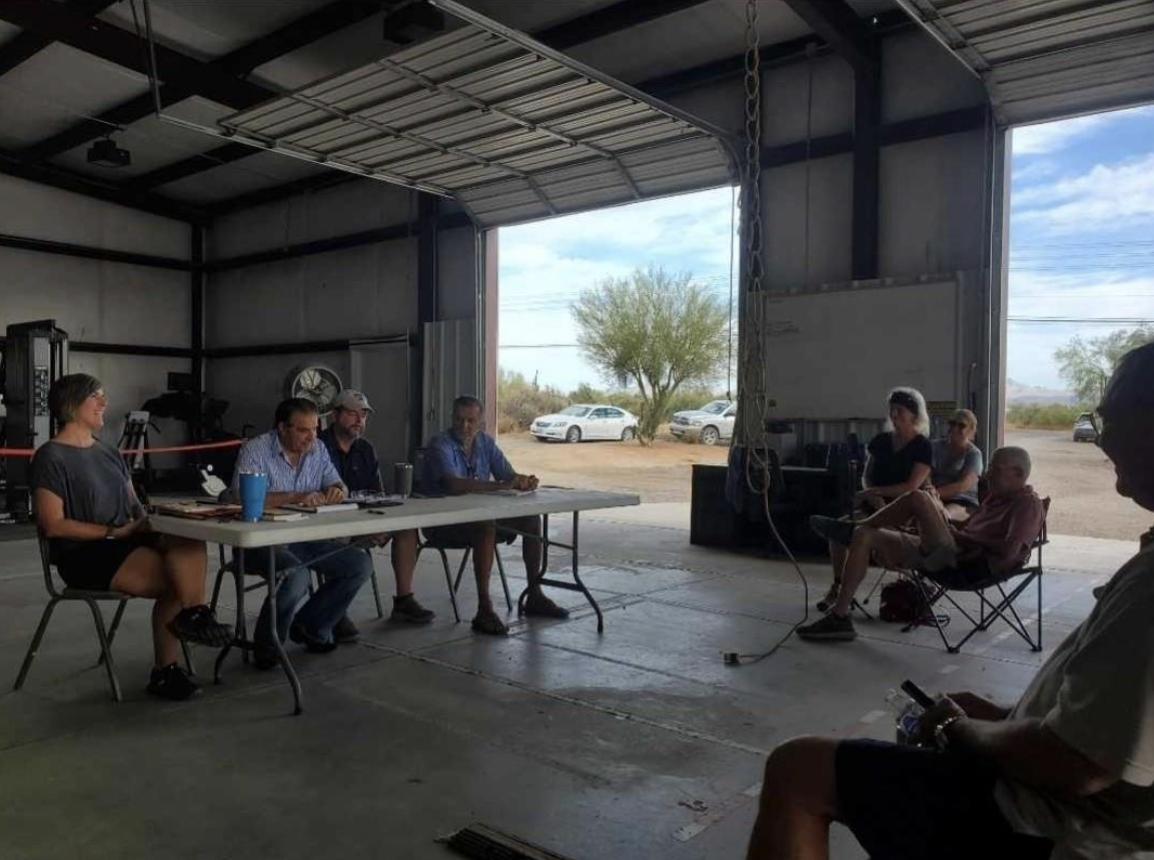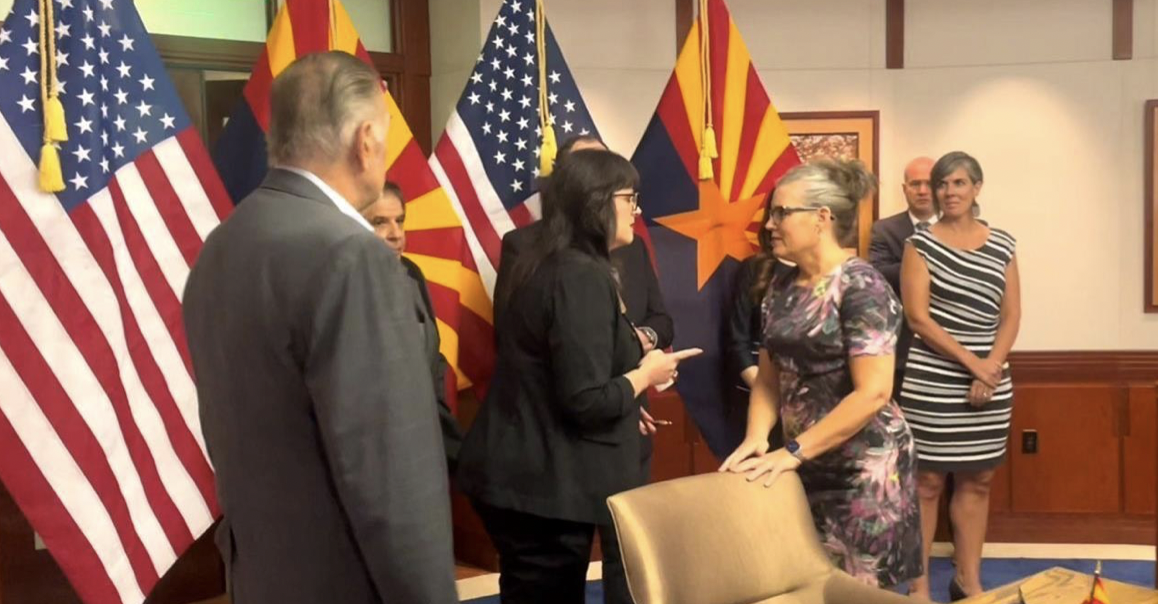Real-world examples of voluntaryist governments are few and far between. Successful real-world examples of voluntaryist governments created by bipartisan supermajorities are practically non-existent. But that is exactly how we solved Rio Verde Foothills water crisis.
In January, the city of Scottsdale cut off water service to the unincorporated community of Rio Verde Foothills, which I represent in the Arizona state legislature. There was, however, a private company willing to supply the community on an interim basis until Arizona’s byzantine water bureaucracy could provide the approvals necessary for permanent service (a years-long process).
Scottsdale, though it was willing to allow the private party to serve Rio Verde, felt it could only lawfully do so via an intergovernmental agreement. The only problem is, there was no governmental entity willing to contract with Scottsdale.
There was, of course, no practical reason that a private water company couldn’t sign an agreement with Scottsdale directly. Arizona’s water laws would give Kafka nightmares.
Thus, the Rio Verde Foothills lost access to its long-term water supply in what the hyperventilating climate pimps at The New York Times called “a worst-case scenario of a hotter, drier climate,” and what more reasonable minds might call a predictable symptom of overregulation.
Thus also began the finger-pointing game that is the favorite sport of politicians, a species typically more interested in allocating blame for failing to solve a problem than in actually solving it. The city blamed the county, the county blamed the city and much ink was spilled to little effect.
The people of the Rio Verde Foothills moved there precisely because they value their autonomy and freedom from government, a position with which I am very much philosophically aligned. Further, the community was divided by prior efforts to form a Domestic Water Improvement District (DWID), a government entity with the power to supply water but also to involuntarily tax, borrow and, most importantly, subject unwilling people to its authority. This divide was bitter, pitting neighbor against neighbor.
There’s a popular saying in Arizona: “whiskey is for drinking, water is for fighting.”
But now their ability to bathe their children and water their animals was at stake while the smoke of nearby wildfires served as an ominous portent.
Finally, I called a meeting with the city and county. As it turned out, the city didn’t care who it signed an agreement with as long as it was “a government.” The county didn’t care either as long as it didn’t have to sign the agreement. In my law practice, I had become familiar with the idea of a shell company. If that worked for LLCs, I asked, why couldn’t we do the same thing with government? Everyone thought that was swell. But though the problem was solved right then and there, it would take months of political battles before the solution could be passed and signed into law. I will spare you the details of the political wrangling that entailed. Remember, water is for fighting.

Representative Alexander Kolodin (R-LD 3) relaxes by a pond a few miles from Rio Verde Foothills with his son after sending the bill ending the water crisis to the Governor’s desk (courtesy of Alexander Kolodin)
The challenge was to form an entity that could both govern a community dedicated to individual liberty and work quickly and efficiently to restore water access. We’d also need to find a way to give that entity legitimacy when there was no time to hold elections and in a political environment in which elections, being increasingly distrusted, no longer confer as much legitimacy as they once did.
In taking up this challenge, I recalled the model of voluntarism imagined by Heinlein in “The Moon Is A Harsh Mistress” (the moon being an especially appropriate analogy for our arid, desert, environment) and took insight that governments derive “their just powers from the consent of the governed” to its logical extreme. The result was the Rio Verde Standpipe District, a temporary government entity whose legitimacy would come not from electing its members, but from the right of each household to either choose to join or decline to be governed by it.
If a family was happy with their ability to obtain water from alternative sources, had a well or was simply unwilling to allow the appointed board to have any power over their lives, that choice would have the force of law. And, if at any point those who joined became unhappy with the way they were being treated, they could simply leave. There were alternative water sources available. They were unstable, inconvenient and bankrupting families, but they at least gave the Standpipe District some competition.

Rio Verde Foothills Standpipe District board meeting (courtesy of Alexander Kolodin)
By some sort of miracle, this bill, sponsored by myself and Republican state Sen. Justine Wadsack, another member of the staunchly conservative Arizona Freedom Caucus, passed out of the legislature with a bipartisan supermajority. It was quickly signed by Democratic Gov. Katie Hobbs, who lauded it for its potential to serve as a model for future water legislation in the state (please don’t tell her that it’s voluntaryist).
Incidentally, Sen. Wadsack used the signing ceremony to warn the governor not to mess with school choice in Arizona. I really do have some fantastic colleagues.

Senator Wadsack (R-LD 17) tells Governor Katie Hobbs (D) not to mess with Education Savings Accounts during Rio Verde signing ceremony (courtesy of Justine Wadsack)
As the flesh was pressed and the ceremonial pens distributed, the Standpipe District’s volunteer board got to work. Operating on a budget so skimpy that their meetings were held in an unairconditioned shed in Arizona’s summer heat, they quickly inked one of the fastest water deals in Arizona history, securing a source of water and reaching an agreement with the City of Scottsdale to treat and transport it in less than ninety days. Just as importantly, this model of voluntary governance has unified the competing factions of the community, and many who swore never to join are now eager to become members.
So the next time that someone pats you on the head and says that voluntarist ideas are wonderful “in theory” but will never work “in an emergency,” toast them with a nice cold glass of H2O and tell them to get bent. Water is for fighting.
Alexander Kolodin is an attorney and a Republican member of the Arizona House of Representatives serving the people of legislative district three, as well as a member of the Freedom Caucus. You can follow him on Twitter/X, Facebook, or via his website at www.alexforaz.com.
The views and opinions expressed in this commentary are those of the author and do not reflect the official position of the Daily Caller.


